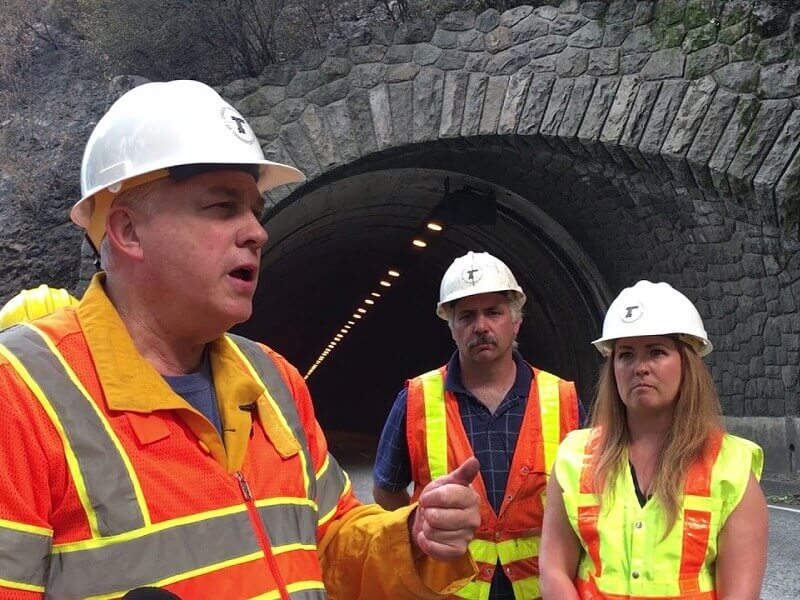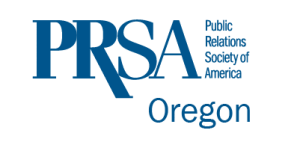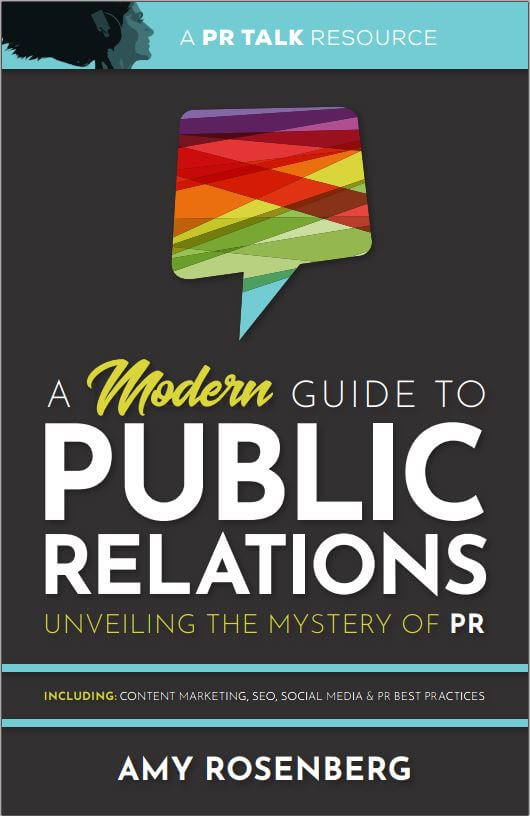Demystifying Crisis PR & the Infamous PIO Role
Learn more at CommCon on May 18th as Dave Thompson gives an inside look at the communications surrounding last summer’s devastating Eagle Creek Fire in the Gorge
“Public relations for government,” Dave Thompson, APR says of his job as Public Information Officer (PIO) of Oregon’s Department of Transportation (ODOT). But as we dig in, I discover the classic role of the PIO to be so much more. Having been at ODOT for over 16 years, he’s technically the Public Affairs Program Manager, overseeing the multitude of PIO’s throughout the state. But when he first started, he was the spokesperson you’d see on TV responding to an issue — a natural disaster, accident, weather, or more — affecting the roads. Today he trains and manages those people, but the job is still intense.
Next week, attendees of CommCon, the Oregon chapter of PRSA’s conference, will get a glimpse of what it’s like to be a PIO. Dave is moderating a session titled “Coordinating Consistent Communications in the Middle of Chaos.” The panel will delve into what happened during the 2017 Eagle Creek Fire that decimated the Gorge and will include speakers from the US Forest Service, Portland Fire & Rescue, and Multnomah County Communications Center. As one of the first PIO’s on the scene, Dave’s mission was to communicate effectively to the public the status of the crisis.
CommCon takes place May 18th from 7:30 a.m. to 5 p.m. at the DoubleTree Hotel (1000 NE Multnomah Street), tickets are available here.
Working Together
The fact that the panel features communicators from multiple agencies points to a key aspect of the job that I didn’t think about. As a PIO responding to disasters affecting the public, you’re working arm-in-arm with multiple government agencies and NGO’s—aligning your messaging and deciding which group, and whom from that group, will serve what function in the Mt. Everest sized list of things to do in a crisis. For example, Dave’s team recently won an award from Travel Oregon for their expert communication management of the Eclipse this summer. As Dave recalls that time, he paints the picture of a busy communication headquarters with executives from different groups serving functions like:
- Managing & assigning duties to the entire team (like an Editor)
- Aligning messaging from all groups
- Pulling together press releases & media communications incorporating that messaging
- Media outreach & response
- Press conference organization & delivery
If it sounds intense, it is. I envision such a headquarters like the inner-workings of a frantic newsroom, and Dave agreed to the comparison. When I asked how people without experience can get involved, he said “you can’t just walk into a situation like that unprepared.” He points to some training resources people can go to, but it seems that on-the-job training and planning ahead with all involved parties is the way to go.
Planning Ahead
The ODOT public affairs team gets roughly 30-40 calls per week from media that need to be promptly and accurately addressed. All contact seemingly involves a crisis of sorts but the way Dave explains it, with a lot of forward thinking and planning, maybe PR practitioners don’t have to relate to every tragedy as the crisis that it indeed is. Dave says that “absolutely” all crises can be planned for, with his team having contingency plans for everything — earthquakes, volcano eruptions, tsunamis, major traffic accidents and more. Not only do all plans live in his computer, he and his team have print-outs and jump drives of plans, media contacts, press release templates, talking points and more, within arm’s reach — in their cars and at home — should a disaster occur and computers aren’t working or available.
Extending the Megaphone
No longer does Dave think of his job as strictly “customer service for the media.” The rise of social media has extended the megaphone — which used to be reserved for media — to the general public, therefore drastically changing the PIO’s function. But Dave’s thinking has also evolved, realizing that the people of Oregon are his customers because they must use the roads safely and efficiently. He treats every inquiry, whether it is FOX news or your grandma, with the same weight.
“The roads are the lifeblood of the economy, greasing the skids so that the economy can flow. Road maintenance is not just for semi-trucks, it’s so you can get to work, get to the store.”
A Varied Past
With a masters in computer science, going on to teach at USC, Dave’s career trajectory — from writing papers and teaching, to eventually working in broadcast for 20 years, to now working at ODOT — seems unlikely.
As a self-professed “nerd” working in computer science at USC, Dave found himself isolated, watching the world move without him. Working late at the office on Friday night he switched on the news. A hostage situation at the airport immediately sparked his adrenaline as he became fascinated with the story execution. The next day, he signed up for a new broadcasting class and the rest is history.
Today Dave is dedicated to teaching others.
“My personal mission in life is to make a difference. Nobody will remember it was me, but some part of life will be better because of something I did.”
Having joined PRSA in 2002, Dave has gone on to teach, learn, and become a chapter board member, expressing that you get out of it what you put into it. Dave has truly left a mark on the Portland community by his commitment to spreading knowledge and helping others.
About the guest: Dave Thompson
Dave is the Public Affairs Program Manager at the Oregon Department of Transportation (ODOT). He leads a team of eight spokespeople spread across the state of Oregon. He is also a lecturer and media trainer for interviews, crisis management and crisis response. Prior to his career as a PIO, Dave was a reporter, producer, anchor and host at various TV and radio stations. He is also a former board member and president of the local Portland chapter of PRSA.
Connect and follow Dave on social media:
This episode of PR Talk is brought to you by PRSA Oregon
Throughout Oregon and Southwest Washington, PRSA provides members with networking, mentorship, skill building and professional development opportunities – whether you are a new professional fresh out of college or a skilled expert with 20 years in the industry. Check out PRSAoregon.org for more information on how membership can help you grow and connect.
PR Talk is sponsored by monday
In such a fast-paced, multi-faceted work environment, it can be tough to stay on top of everything. monday is the collaboration tool trusted by businesses of all kinds to help cut down the clutter and streamline productivity. Learn more at monday.com and signup for a free trial. You’ll see in no time why so many teams around the world are choosing monday for their project management needs.
PR Talk listeners can use the coupon code BetterExecute for a 15% discount.













This is a terrific show! Thank you. We ALL had better be prepared for an emergency. . . I better get planning.